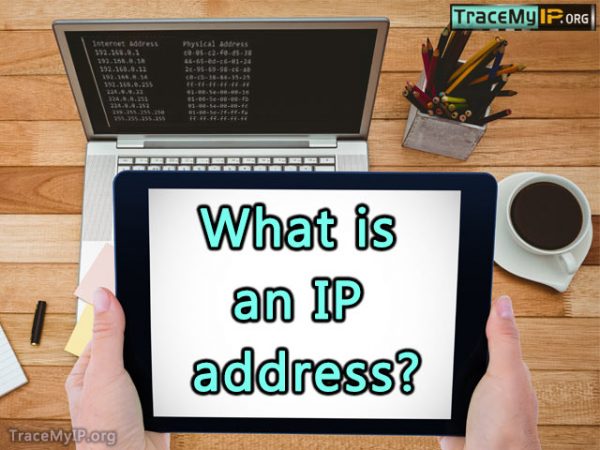What is an IP address?
IP Addresses: The Digital Coordinates Powering the Internet
 An IP is an abbreviation of Internet Protocol. IP serves a role of a digital computer identification number that is assigned by a network it’s connected to. Without an IP address, networking and IP tracking would not be possible.
An IP is an abbreviation of Internet Protocol. IP serves a role of a digital computer identification number that is assigned by a network it’s connected to. Without an IP address, networking and IP tracking would not be possible.
📈 Sign Up now to instantly track website visitors IPs!
An IP address can be considered a digital address of internet-connected devices and allows direct connectivity to a specific machine. Every device connected to the internet – whether it’s your smartphone, laptop, or a web server – has its own unique digital address called an IP (Internet Protocol) address. Without these addresses, the internet as we know it wouldn’t function.
IPv4 vs. IPv6: The Evolution of IP Addresses
Currently, there are two formats of IP addresses – IPv4 and IPv6. IPv6 is the latest implementation to expand the availability of an IP address assignment range. IPv4 has not been able to cope with the demand in the quantity and range of devices that required Internet connectivity.
IPv4: The Original Standard (Running Out of Space!)
- Uses a 32-bit address format (e.g., 192.168.1.1).
- Allows for about 4.3 billion unique addresses—which seemed like plenty in the early days of the internet.
However, with the explosion of smartphones, IoT devices, and cloud computing, we’ve nearly exhausted available IPv4 addresses.
IPv6: The Future-Proof Solution
- Uses a 128-bit address format (e.g., 2001:0db8:85a3:0000:0000:8a2e:0370:7334).
- Supports a staggering 340 undecillion (3.4 × 10³⁸) addresses—enough for every grain of sand on Earth to have its own IP!
- Designed for scalability, security, and improved routing efficiency.
Fun Fact: Despite IPv6 being introduced in 1998, the transition has been slow. As of 2024, only about 40% of Google’s traffic uses IPv6 – showing how deeply entrenched IPv4 still is.
Shared vs. Dedicated IPs: What’s Best for Your Website?
In relation to a web hosting environment, there are two types of IP addresses – Shared and Dedicated. A shared IP address generally hosts 2 or more websites.
1. Shared IP Addresses
- Multiple websites use the same IP.
- Common in shared hosting environments (cheaper but less control).
- Works fine for most small-to-medium sites.
- Potential downside? If one site on the shared IP gets blacklisted (e.g., for spam), others might suffer collateral damage.
2. Dedicated IP Addresses
- Exclusively assigned to a single domain.
- Essential for certain use cases:
- Running an SSL/TLS certificate (especially older setups).
- Hosting an eCommerce site (better security & reputation).
- Setting up a private server (FTP, gaming, VPN).
- Offers better performance & reliability for high-traffic sites.
Pro Tip: With modern hosting (especially cloud-based solutions), the need for a dedicated IP has decreased – thanks to SNI (Server Name Indication), which allows multiple SSL certificates on a single IP.
Who Manages All These IP Addresses?
IP addresses aren’t just handed out randomly. The IP address availability is managed by the Internet Assigned Numbers Authority (IANA), and by five regional Internet registries (RIRs) according to their designated territories. The IP distribution allows assignment to local Internet registries as Internet service providers (ISPs), and end-users directly. IPv4 addresses are distributed by IANA to the RIRs.
Here’s a structured global system
- IANA (Internet Assigned Numbers Authority) – The top-level authority overseeing global IP distribution.
- RIRs (Regional Internet Registries) – Five organizations managing IPs by region:
- ARIN (North America)
- RIPE NCC (Europe, Middle East, Central Asia)
- APNIC (Asia-Pacific)
- LACNIC (Latin America & Caribbean)
- AfriNIC (Africa)
- ISPs & Local Registries – They assign IPs to businesses and end-users.
Did You Know? The last remaining IPv4 blocks were officially exhausted at IANA in 2011, pushing the internet toward IPv6 adoption.
Final Thoughts: The Internet’s Addressing System Is Evolving
IP addresses are the backbone of internet communication. While IPv4 served us well, IPv6 is the inevitable future. And whether you choose a shared or dedicated IP for hosting depends on your needs—budget vs. performance, security, and scalability.
What’s next? As 5-6G, IoT, and AI expand, the demand for IPs will skyrocket. The shift to IPv6 isn’t just an option – it’s a necessity.
So, the next time you browse a website or connect a smart device, remember: behind every click is a tiny but mighty IP address, making the magic of the internet possible!
🌍 Who visits your website? Sign Up now to find out instantly!
